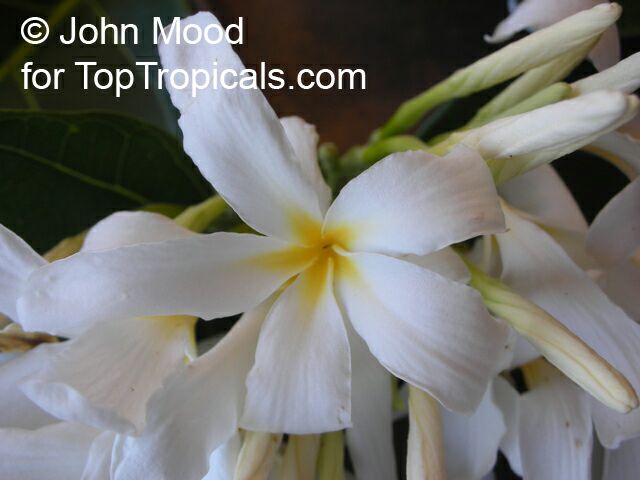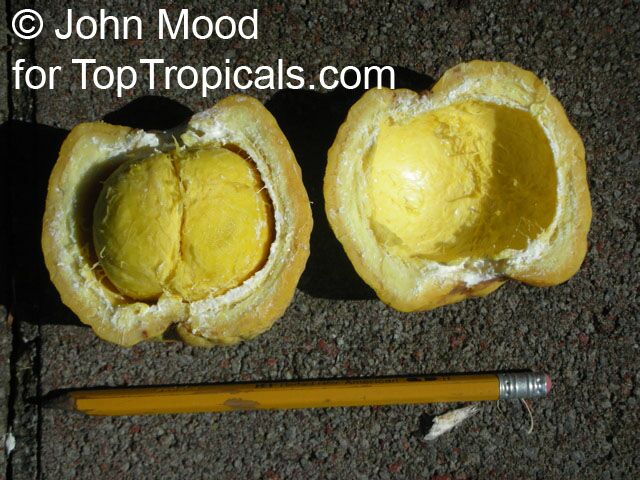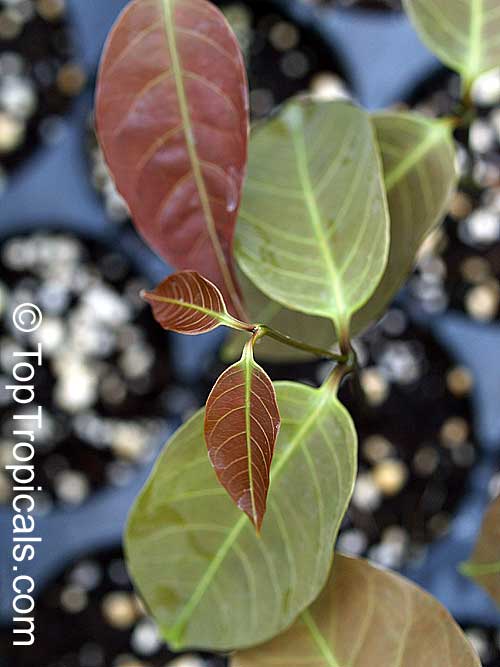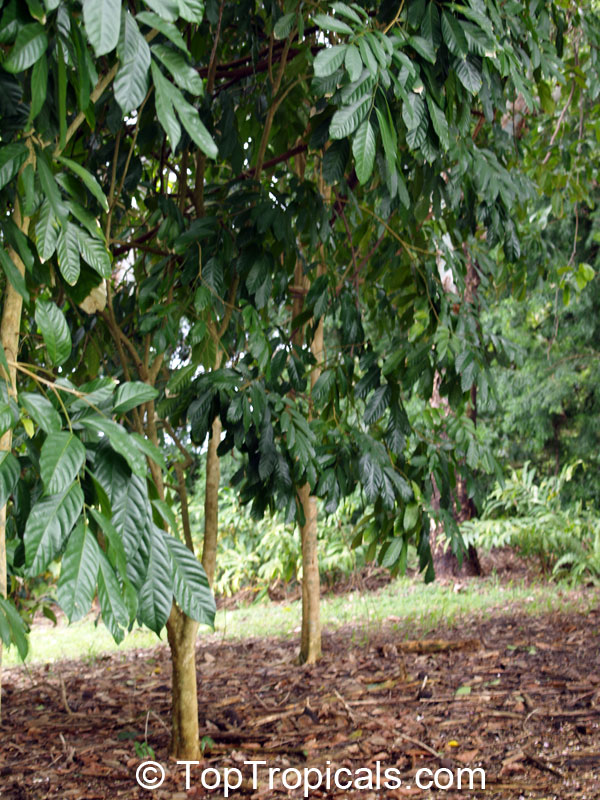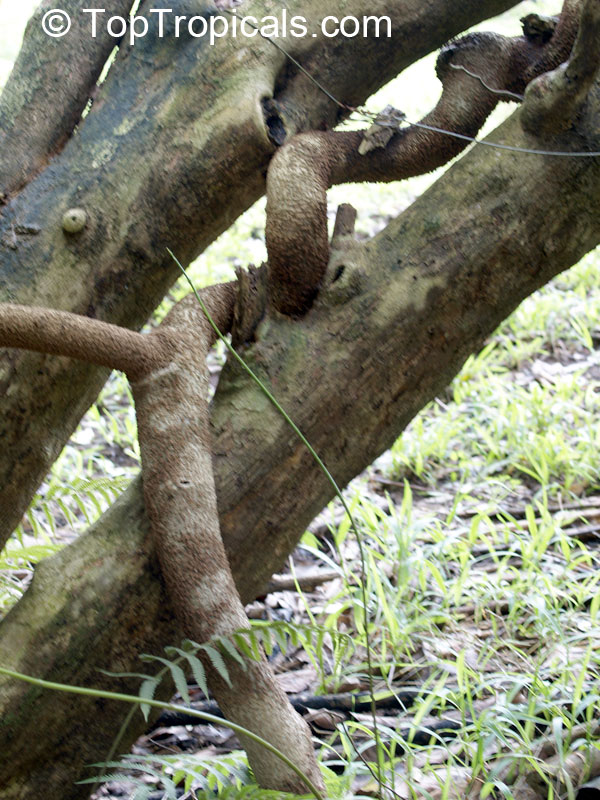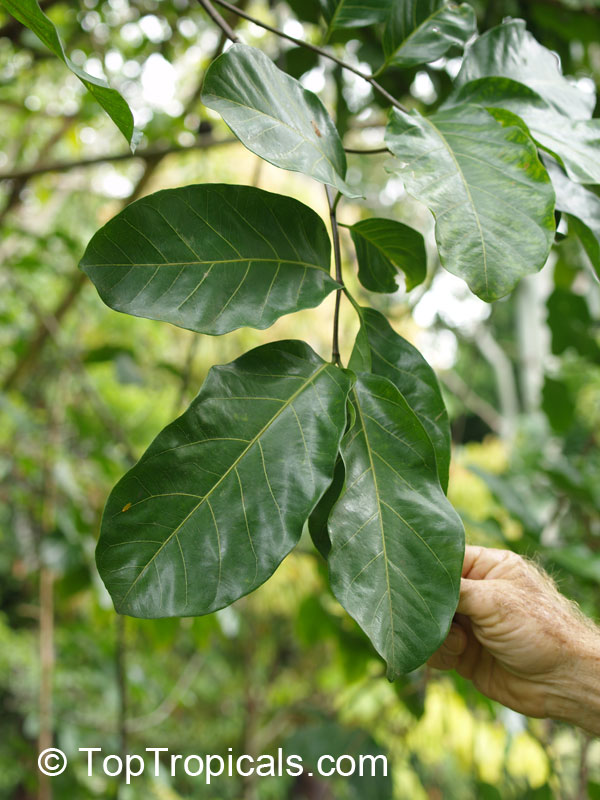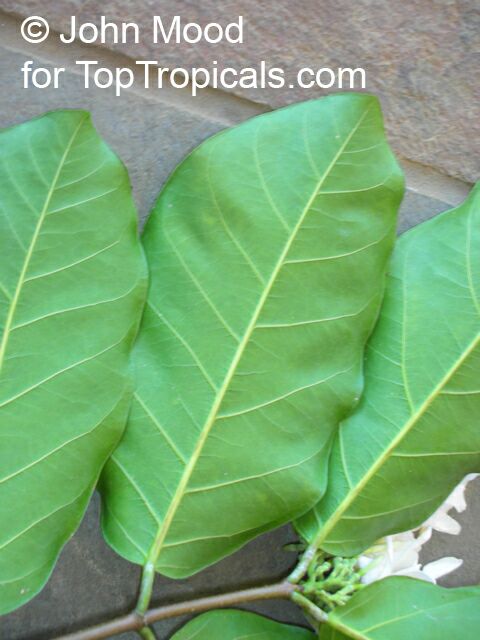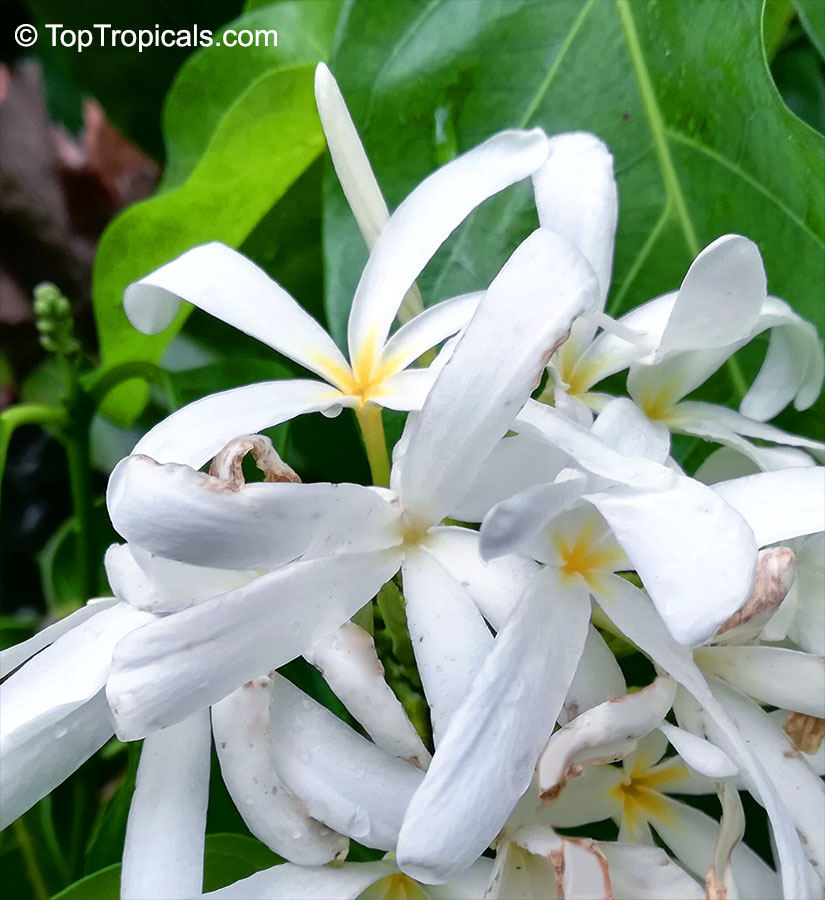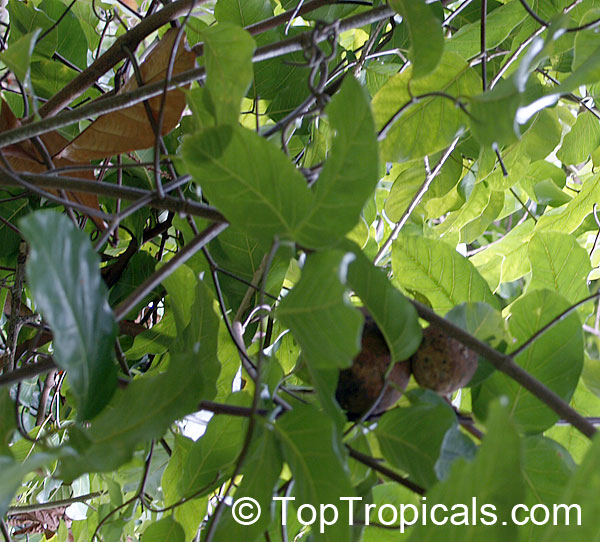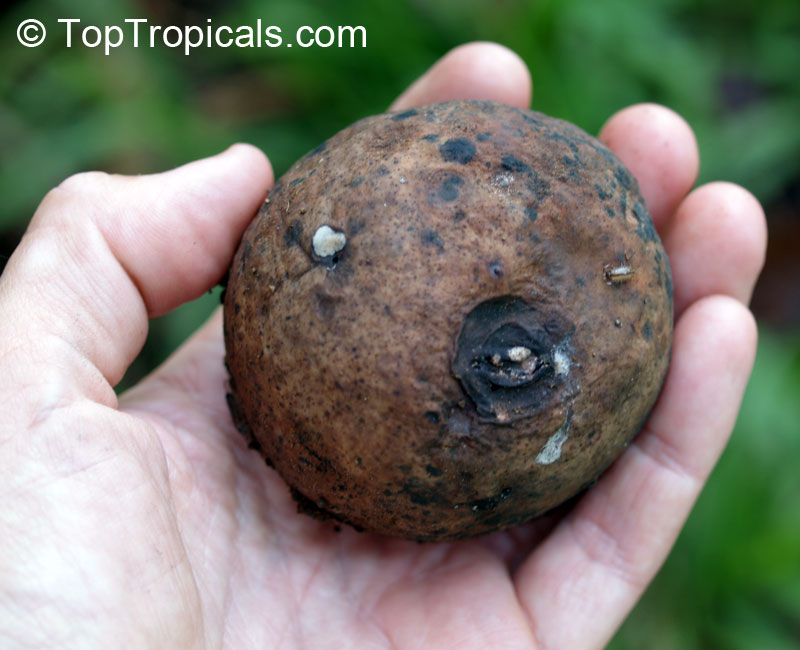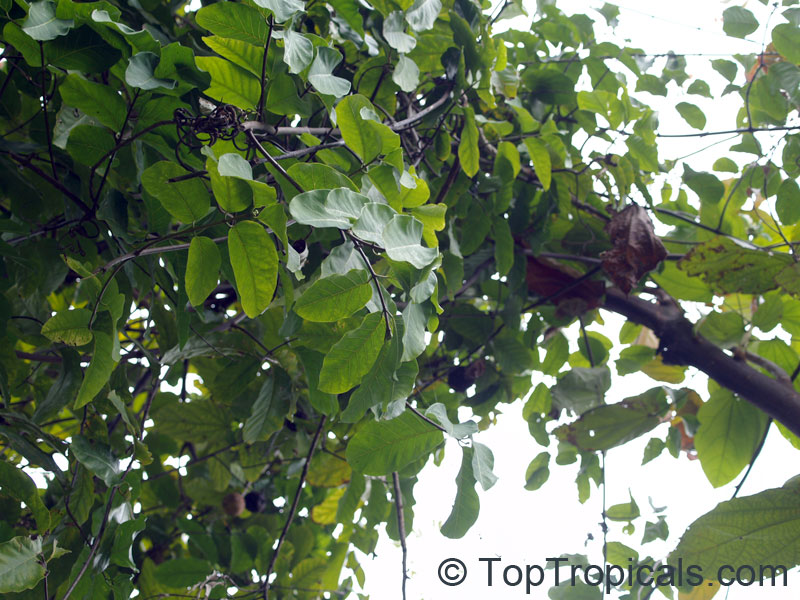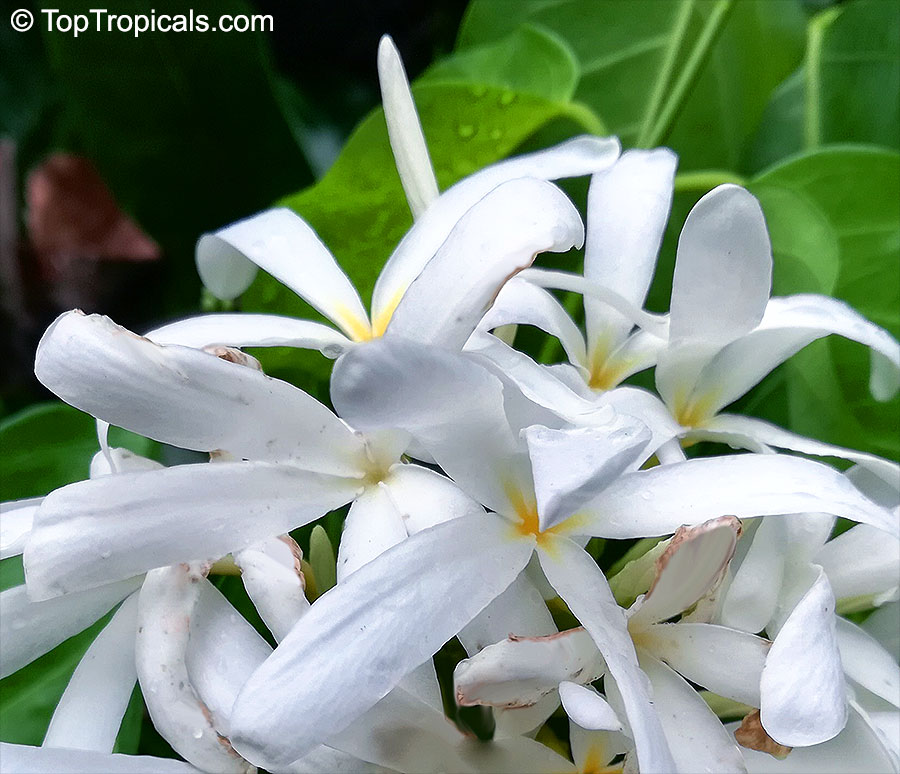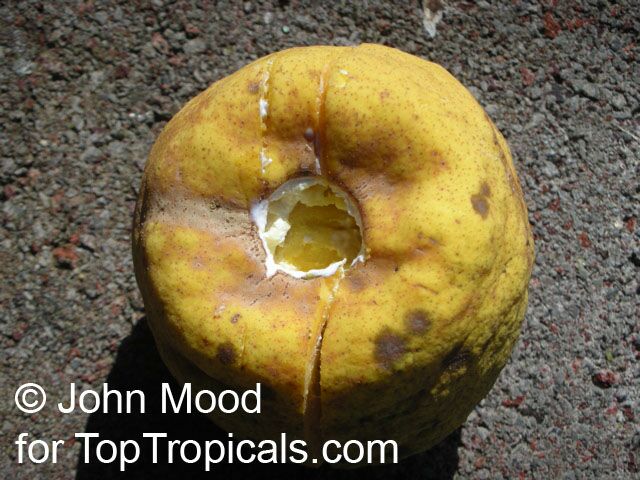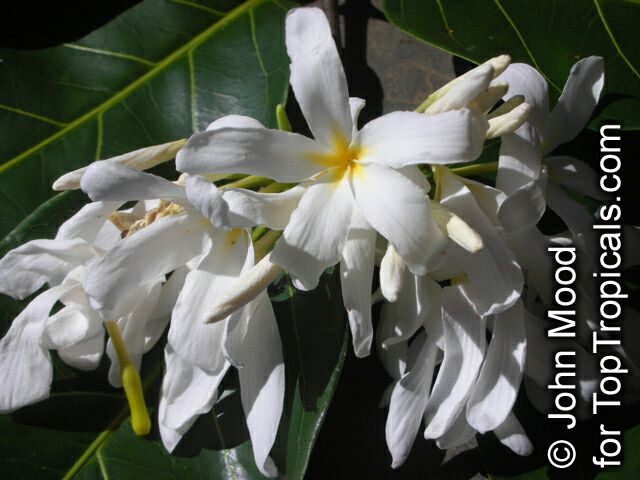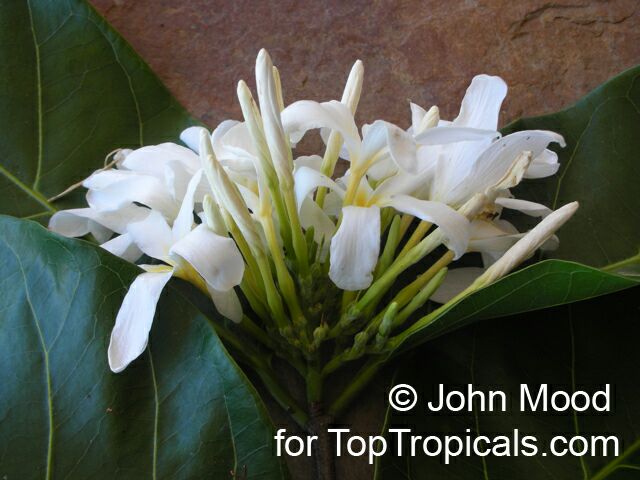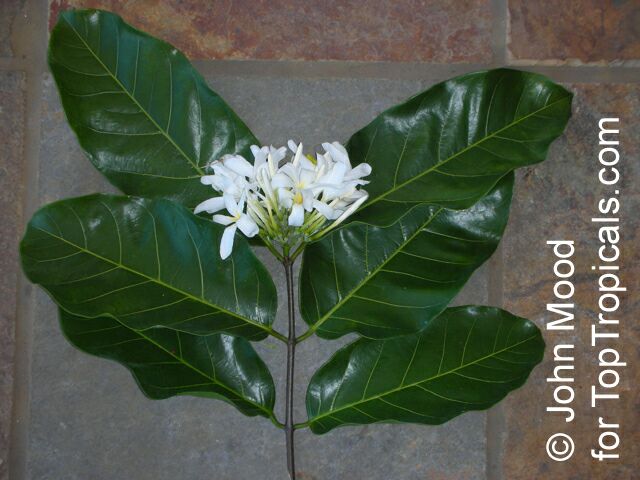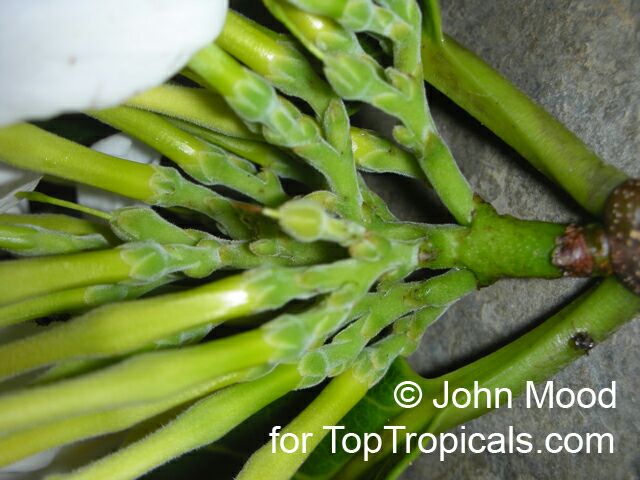Saba comorensis (Mbungu)
Botanical names: Saba comorensis, Landolphia comorensis
Common names: Mbungu, White Rubber Vine, Vbundu
Family: Apocynaceae
Origin: South Africa









Saba comorensis, commonly known as Mbungu, is a vine or creeper that is native to South Africa. It is an ethnomedical plant, believed to have medicinal properties, along with being edible. This plant is an evergreen, meaning it can retain its foliage all year round. It requires full sun to semi-shade, and has a medium water requirement. It can be grown in USDA Zone 9-11.
Mbungu is characterized by its unique white or off-white, fragrant flowers. This plant blooms in the late winters and produces round-shaped fruits in the summer season. The fruits are yellow in color when ripe and about the size of a large orange. It is sour in taste and packed full of nutrients. It offers several health benefits, such as aiding in digestion, and boosting immunity due to its Vitamin C content. A single plant can bear up to twenty fruits throughout the season.
Growing Mbungu is an easy task. It can be planted in a pot for a short period of time, and in cold climates, plants are grown in pots at indoors as a houseplant. This plant needs regular watering; however, during winter months, the number of waterings can be reduced to moderate levels. In colder regions, Mbungu can be moved indoors. The soil must be well drained and rich in organic matter to ensure it gets the best nourishment.
